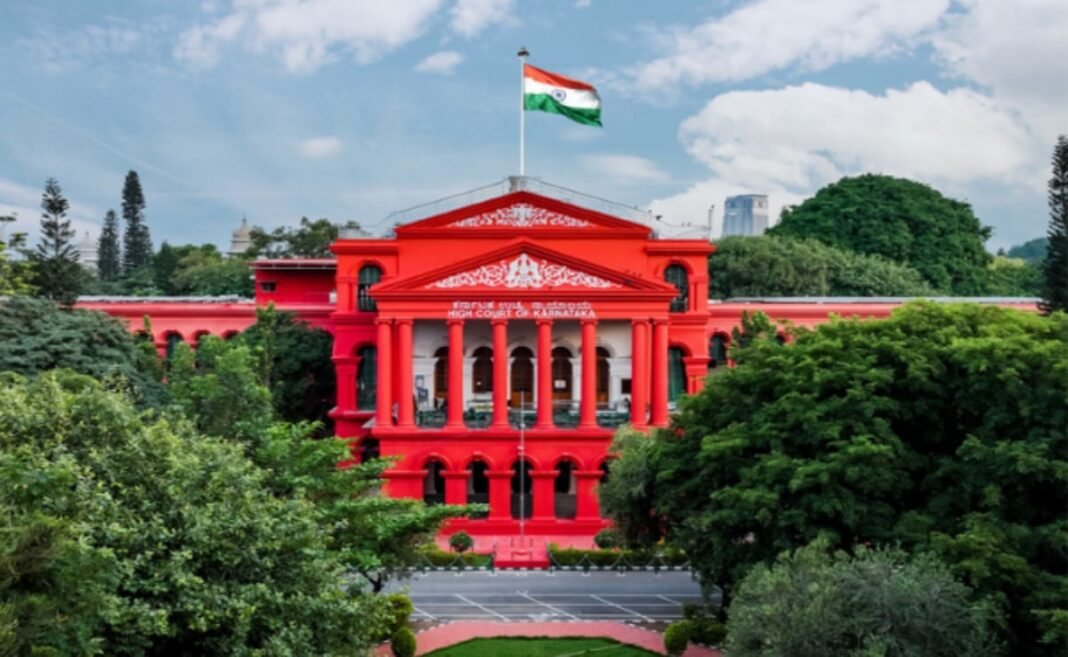Contents [hide]
Karnataka High Court Advocates for Uniform Civil Code to Ensure Equality in Inheritance Laws
The Karnataka High Court has called for the enactment of a Uniform Civil Code (UCC) by Parliament and state legislatures, highlighting its critical role in promoting constitutional values of equality, justice, and secularism, particularly for women.
Lead: In a significant ruling, the Karnataka High Court has urged the Indian Parliament and state legislatures to enact a Uniform Civil Code (UCC) aimed at ensuring equality under personal laws. This recommendation comes from a civil appeal concerning a property dispute among siblings and the husband of a deceased Muslim woman, Shahnaz Begum. The ruling emphasizes the necessity of a UCC to rectify gender disparities in inheritance laws, which vary according to religious statutes.
Understanding the Call for a Uniform Civil Code
The Karnataka High Court’s recommendation reflects a longstanding debate in India regarding the need for equitable personal laws. Here are the key points surrounding this development:
– **Ruling Authority**: The recommendation was made by Justice Hanchate Sanjeev Kumar during a civil appeal deliberating on property rights among the heirs of Shahnaz Begum.
– **Constitutional Basis**: According to Article 44 of the Indian Constitution, the UCC aims to provide all citizens with equal rights under a common set of civil laws, irrespective of their religion.
– **Equality Issues**: The Court emphasized that the dissimilar personal laws currently in place result in unequal treatment for women, undermining their rights as citizens of India.
The Case at Hand
The specific case that prompted this recommendation involved a dispute over the distribution of property left by Shahnaz Begum. Some relevant details include:
– **Plaintiffs**: The appeal was filed by Shahnaz’s brothers and sister, who contended that the properties should be divided equally among all heirs and the husband.
– **Initial Ruling**: The trial court partially accepted their claim but ultimately awarded the husband a majority share, citing the properties’ acquisition details.
– **Final Judgment**: The High Court ruled that the properties were acquired jointly by Shahnaz and her husband, not solely through her earnings, thus reaffirming the husband’s majority share while addressing the siblings’ claims.
Gender Justice and Inheritance Disparities
The issues highlighted in this ruling extend far beyond one family’s inheritance dispute. They underscore significant concerns regarding gender justice and equality in India:
– **Disparity in Laws**: Justice Kumar pointed out the unequal inheritance rights enforced by personal laws between Hindus and Muslims:
– **Hindu Law**: Grants equal rights to daughters in ancestral property.
– **Muslim Law**: Treats brothers and sisters differently, often marginalizing sisters in inheritance scenarios.
– **Historical Perspective**: The Court referenced support for a UCC from influential historical figures, suggesting that the lack of a unified personal law reflects a challenge in achieving true equality.
Current Legislative Landscape
– **Existing Models**: States like Goa and Uttarakhand have initiated steps toward implementing a UCC, serving as precedents for the call from the Karnataka High Court.
– **Judicial Pressure**: The Court directed the state’s Registrar General to share the judgment with the law secretaries of both the central and state governments to encourage legislative action.
– **Public Opinion**: The ruling also provides a voice for advocates pushing for reforms that align with gender equality and secularism.
The Importance of a Unified Legal Framework
The recommendations from the Karnataka High Court stress the urgency of establishing a uniform legal framework that promotes justice and equality for all citizens. Key aspects of this framework include:
– **Addressing Legal Ambiguities**: A UCC would eliminate the confusion resulting from different personal laws, ensuring consistency across the nation.
– **Promoting Gender Equality**: A singular set of laws would guarantee equal rights for women, especially in inheritance cases and beyond.
– **Societal Consensus**: Historically, leaders have recognized the need for such a code as a pathway to achieving greater national unity.
Conclusion: The Karnataka High Court’s call for a Uniform Civil Code not only addresses immediate inheritance disputes but also serves as a powerful reminder of the inequalities that persist in Indian society. As discussions around gender justice and secularism gain traction, this ruling adds momentum to the movement advocating for legislative reform. With continued judicial support, India may move closer to achieving the ideals enshrined in its Constitution.
Keywords: Karnataka High Court, Uniform Civil Code, inheritance laws, gender equality, personal laws, Article 44, Justice Hanchate Sanjeev Kumar, Shahnaz Begum.
Hashtags: #UniformCivilCode #KarnatakaHighCourt #GenderEquality #InheritanceLaws #IndianConstitution
Source link




 Stay Informed Without the Overload!
Stay Informed Without the Overload!